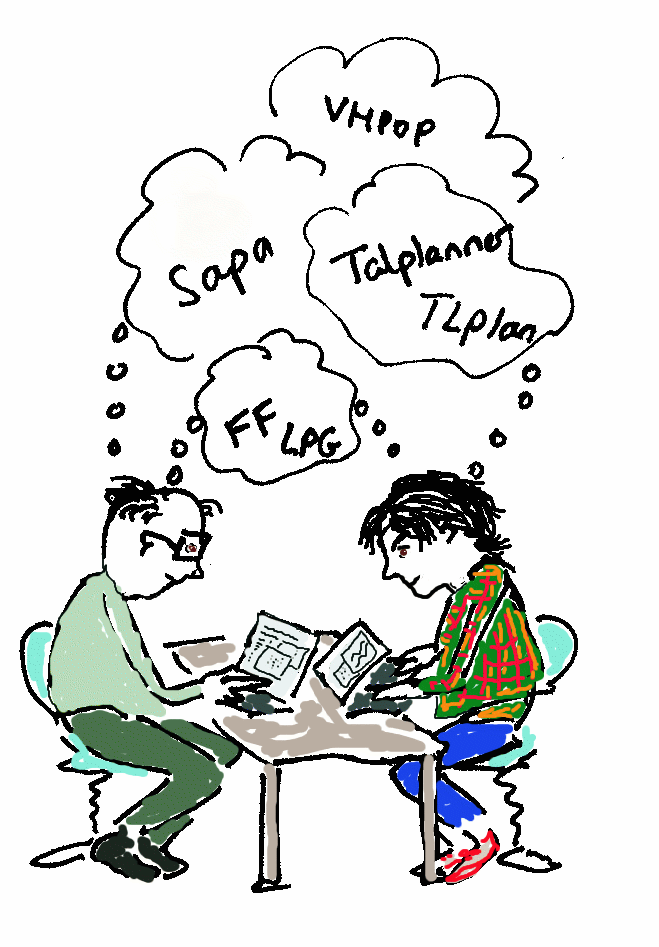Consulting Committee
|  |
Consulting Committee
|  |
The International Planning Competition has been a bi-annual event, hosted at the Artificial Intelligence Planning and Scheduling Conference series. The event began in 1998 when Drew McDermott and a committee created a common specification language (PDDL) and a collection of problems forming a first benchmark.
In 2000, Fahiem Bacchus continued this work, and the event attracted 15 competitors. The event extended to include both fully automatic and hand-tailored planning systems. Both STRIPS and ADL domains were used but no further extensions were made to the language.
The 2002 competition, run by Derek Long and Maria Fox, focussed on planning in temporal and metric domains. McDermott's PDDL was not expressive enough to enable the modelling of durations, time-dependent effects and continuous resource consumption, so it was extended to enable the modelling of these features. The resulting language, PDDL+, consists of five levels of expressive power the first three of which (together known as PDDL2.1) were used in the competition. A brief description of the domains used, the actual problem sets tackled by the participants and the generators that enable automatic generation of problem instances, are all available by selecting the Domains button on the left.
The objectives of the competition series are to provide a forum for empirical comparison of planning systems, to highlight challenges to the community in the form of problems at the edge of current capabilities, to propose new directions for research and to provide a core of common benchmark problems and a representation formalism that can aid in the comparison and evaluation of planning systems. The 2002 competition posed a number of important new challenges for planning, and it is exciting to see that there are now several planning systems capable of successfully tackling very complex problems with both numeric and temporal features. All of the data produced by all of the competing planners will be made available very soon - we are working on it now - and will be available by selecting the Results button.
Although the series has a competitive style (individual systems are identified for exceptional performance at the event itself), the focus is on data-collection and presentation, with interpretation of results being understated. The real goal of the competition is to make as much data as possible available to the community. Therefore, all competitors do an important service to the community by investing their efforts to collect this data. Participants can choose to attempt relatively small subsets of the problem collections while still providing valuable data and other input into the event.
The competition organisers are very grateful to RM plc for their generous provision of a PC to host the competition tests. RM has shown support for and interest in the event as part of its broad involvement in technology provision for all levels of education and research.
The organisers also wish to acknowledge the very generous support of Franz Inc. who have supplied a copy of Franz Allegro CL Enterprise 6.1 for the use of competitors. Many thanks to them for their continued interest in this event.